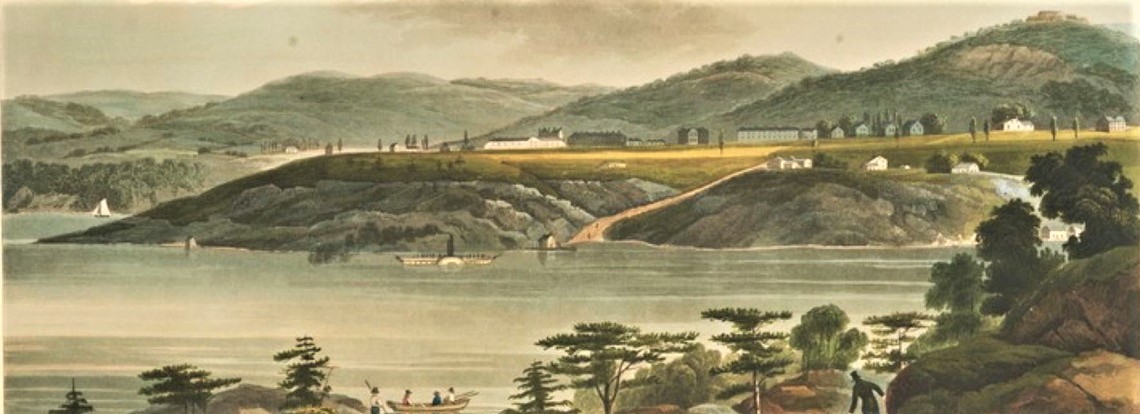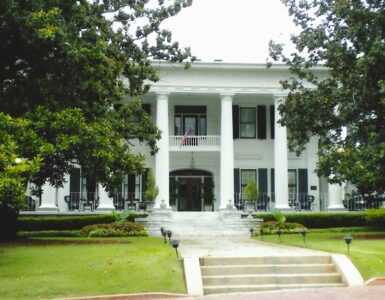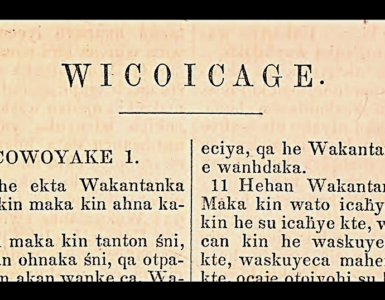William Thomas was born March 16, 1809 to Rebecca (McConnell) and William Sprole in Baltimore, Maryland. His early education was directed by a local minister named John Gibson. When he was sixteen years old William became a communicant member of the Associate Reformed Presbyterian Church in Baltimore that was pastored by John M. Duncan, but within a short time he transferred to First Presbyterian Church (Presbyterian Church in the United States of America, P.C.U.S.A.) which was served by William Nevins. The Presbyterian Encyclopedia, edited by Alfred Nevin, described Pastor Nevins as having been “thought volatile in his manners and too imaginative in his pulpit efforts” but “he gradually sobered down” and “attained to a wonderful self-restraint.” Unfortunately, his matured ministry was short lived because he passed away at the age of thirty-eight years. Sprole had hoped to attend college but when his father died the household was left short of funds leaving him to study college subjects with tutors and then theology with Rev. Duncan. He went on to attend Princeton Seminary with the intention of completing the full course, but his mother’s death forced him to return home and oversee the household. Despite Sprole’s rough road to an education he made it through the challenges and was licensed by the Presbytery of Baltimore (P.C.U.S.A.), October 8, 1829, and was then ordained sine titulo (without a particular call but called an evangelist) by the same presbytery March 27, 1831. His work in Baltimore was short lived.
Sprole left the P.C.U.S.A. in 1832 to become a minster in the German Reformed Classis of Philadelphia serving First German Reformed Church which was located at Fourth and Race Streets. The change of denomination does not appear to have been due to a love for the Heidelberg Catechism over those of Westminster, but instead because it offered him a greater opportunity to preach to many. The perspective of the congregation on revivalism is indicated by Charles G. Finney’s series of new measures meetings conducted in the church from mid-August to early January 1829. Finney noted that according to what he had heard, First German Reformed was the largest church building in the city and he assessed its seating at 3,000 (hard to believe). Just two years before Sprole went to the church, the congregation had completed its transition from German-English worship to using English exclusively. Sprole was the first installed minister leading the English only services. It was a fruitful time for Sprole as he garnered a reputation for considerable pulpit skills, so as sometimes happens, another church sought him for its pulpit. His new call would take him west to the Cumberland Valley.
His new ministry would not be in another German Reformed congregation. In 1837, First Presbyterian Church of Carlisle (P.C.U.S.A.) sought him to supply their pulpit which was recently left vacant by the departure of their controversial minister, George Duffield. The Carlisle congregation was given permission sometime early in 1837 by Carlisle Presbytery to approach the German Reformed Classis of Philadelphia regarding Sprole’s services as a supply minister. The Classis granted the request sometime in the fall. That May, the P.C.U.S.A. General Assembly had split into the Old and New Schools. Carlisle Presbytery was Old School except for three churches that left with the New School, one of which was First Church in Carlisle. First Church did not have nor did Sprole ever present ministerial credentials to any judicatory while in Carlisle to authenticate his qualifications for ministry. For those unfamiliar with presbyterian order and ecclesiology, an uncertified minister is akin to a physician practicing without a license except the minister deals with eternal souls and not temporal bodies. Would you want brain surgery from a doctor with an empty board certification frame on his wall? Despite his questionable status as a minister overseen by an entity 120 miles away, he believed himself qualified to join with other signatories in what became a successful petition to the New School Synod of Pennsylvania to establish a presbytery that included the Carlisle congregation as well as several others in the region (it was named the Presbytery of Harrisburg). Sprole continued as a German Reformed stated supply through his entire six-year Carlisle tenure that ended October 22, 1843. It was not uncommon for churches to rely on supply ministers and in some cases presbyteries and synods rebuked sessions for not hiring a full-time minister when the congregation had the financial means to do so. Interminable supplies offered a way to get around presbytery oversight, as would be seen in the case of Harry Emerson Fosdick in the early twentieth century. Sprole’s ministry thus far tis just a wee bit unusual to say the least. On the positive side, one of Sprole’s acquaintances with typical Victorian courtesy said he was “a man of unusually fine appearance, dignified, graceful and genial; a gentleman of the old school [not theologically]; a man of eloquence and power in the pulpit” (Thompson, 53). William Sprole was not to remain in Pennsylvania because his next call removed him from the world of agriculture and timber in the Cumberland Valley to a very different situation.
The next church was in the nation’s capital serving one of the premier New School congregations, First Presbyterian. He was installed November 27, 1843 and among his congregants were elected, appointed, and hired government personnel. During his tenure he was also chaplain of the House of Representatives 1845-1847. Currently, chaplains to Congress are elected by the respective houses because popular election was thought to remove the intrigue of politics manifest in the appointing process, but there were some in the 1850s who thought the better solution was to end the chaplaincy because they thought it violated separation of church and state (they were unsuccessful). As will be seen, there was good reason for Congress to move to selecting their own chaplains.
Among the government personnel in Sprole’s congregation was the sitting president, James K. Polk. The K stands for Knox which was his mother’s maiden name, and she was a direct descendant of the Protestant reformer John Knox. The president was impressed with Sprole’s preaching and had him appointed chaplain of the United States Military Academy. After dissolution of his pastoral call on April 2, 1847, Sprole made his way to the Hudson River and the scenic campus of West Point. According to Herman A. Norton, things did not go well for him from the beginning. The fact he had no military experience was an encumbrance because he did not know how to do things the Army way. Another problem was the chaplain’s work included teaching classes on ethics, but his lack of academic qualifications shortchanged students and disenfranchised him with the faculty. His lack of military experience surely did not help either. Nothing went well for Sprole. Reports from boards auditing his work expressed dissatisfaction with his competency while noting evidence of his ineptitude present everywhere. The two members of a board most adamantly seeking his dismissal were Presbyterians (sorry, no names given, but possibly, Old School). Norton’s negative assessment is based on board reports and documentation from the Point, but some assessed his work differently as can be seen by response to his abrupt termination August 21, 1856. It was during the presidency of Franklin Pierce when Sprole received a letter from Secretary of War Jefferson Davis saying it was time for him to go. One newspaper sympathetic to Sprole’s plight reported that the order to discharge him had been presented to President Pierce in the wee hours of Sunday morning while he was in the capitol following an extended session of the Senate enjoying wine and song with like-minded public servants. The reporter noted that none of the men present cared for Sprole. Secretary Davis entered the room and presented a document appointing Episcopal minister J. H. French chaplain and professor of ethics. The reporter commented that President Pierce, “quite unconscious of what he is doing” signed his name. Thus, Sprole is no longer at West Point, and as the reporter expressed it, “Rev. Dr. Sprole is officially decapitated.” He protested to Davis to no avail. It was an inglorious end to a difficult decade at West Point per Norton, but the reporter assessed Sprole’s term better saying he had “a well-deserved reputation for eloquence and power in the pulpit, as well as skill and untiring assiduity in the Professor’s chair, while imparting instruction to the Cadets.” Norton and the reporter were at odds and the truth likely lies somewhere in the middle of their accounts. The Secretary of State’s dislike for Sprole may have stemmed from his New School abolitionist view or even his adamant temperance position, but given that Davis was an Episcopalian his church views appear to have been influencing his state duties, but Polk had done this as a Presbyterian. Thus, the current election of chaplains by the houses of Congress may better represent the interests of the senators and representatives, but at least in the cases of Polk and Pierce (Davis) they understood the nation as a people under God and they appointed chaplains who to some degree represented historic Christianity (polities aside). The exact nature of the tension between Representative Davis and Rev. Sprole is not certain, but they had opportunities to cross paths during Sprole’s term in First Church and even more so when he was Chaplain of the House of Representatives.
Sprole’s last years were spent doing what he did best, preaching to a congregation. His next call took him just a dozen miles up the Hudson River to First Presbyterian Church in Newburgh where he was installed by the Presbytery of North River, October 28, 1856. It was the most settled ministry of his life extending for nearly sixteen years. A new and stately church building was constructed (a process often stressful for a minister), and the congregation increased in number. Indicative of the mutual respect and fondness between Sprole and his flock, the church’s centennial in 1884 unveiled in the church a simple memorial tablet for Sprole and his predecessor, John Johnston (the first two ministers). The good time of ministry at Newburgh after his unsettling experience at West Point proved to be a much-appreciated blessing. November 13, 1872, Sprole was released from his call by presbytery, but it was several months before he accepted a new position. However, the new one involved a move 560 miles west to the city of Detroit.
Once again, he switched denominations and polities as he began preaching in Detroit in the Second Congregational Church in 1874 and continued for just three years before retiring from the full-time pastorate to live out his years supplying pulpits in the city and surrounding communities. He died in Detroit, June 9, 1883, at the age of seventy-four and was buried in Crown Hill Cemetery, Indianapolis, in the family plot of his second wife.
Dr. Sprole was married twice. His first wife was Elizabeth Pile of Philadelphia and they were married November 17, 1832, but she died after thirty-five years together. Margaret Macfarland Brown of Indianapolis was married on May 26, 1875. Margaret and the children of Elizabeth, Samuel and Henry, and two daughters survived him. One can only imagine the active support of the Union that Sprole manifested given his discharge from West Point by President of the Confederacy Jefferson Davis. Both of Sprole’s sons, as would be expected, fought for the North.
Please visit the Presbyterians of the Past homepage and see the topical selections included in the recently updated “Notes & News” collection. Older entries no longer available on the homepage can be accessed in the “Notes & News Archive.”
Barry Waugh
Notes: The header is West Point circa 1825 and is from the NYPL digital collection; this uncharacteristically picture-less post is the result of either unavailable or bad quality illustrations. Unfortunately, no portrait of Sprole was found. I found “History of First German Reformed Church, Philadelphia,” in the Historical Society of Pennsylvania catalog entry for the church’s records it holds very helpful and nicely done—accessed 3/1/2021. The quote about Sprole and other information about his work in Carlisle is from Centennial Memorial Carlisle Presbytery, vol. 2, pages 138-139; more Carlisle information was located in, “Rev. W. T. Sprole,” Carlisle Herald & Expositor, Wednesday (February 24, 1847); Finney’s account of the First German Reformed meetings is on page 245 of Memoirs of Rev. Charles G. Finney Written by Himself, New York: A. S. Barnes & Company, 1876, but if you want the critical edition of Finney’s Memoirs, see Garth M. Rosell and Richard A. G. Dupuis, editors, The Memoirs of Charles Finney: The Complete Restored Text, Grand Rapids: Zondervan Academie Books, 1989, pages 254-55 address the revival in Philadelphia; Thompson refers to Allan D. Thompson, The Meeting House on the Square: An Historical Sketch of the First Presbyterian Church of Carlisle, Pennsylvania, 1964; for the Washington church see, The Centennial of the Beginning of Presbyterianism in the City of Washington, The First Presbyterian Church, November 17th to 22d 1895, Washington, D. C., 1895; one of a five-volume series on the Army chaplaincy is Herman A. Norton’s Struggling for Recognition: The United States Army Chaplaincy, 1791-1865, Washington, D.C.: Office of the Chief of Chaplains, Dept. of the Army, 1977, pages 37-39; Jefferson Davis represented Mississippi in the House of Representatives from 1845 to 1853 and then after his service as Secretary of State he again worked in the House, 1857-1861; the move to Newburgh is provided in Centennial Celebration of the First Presbyterian Church, Newburgh, N. Y. 1784-1884, Newburgh, 1884; a personal but not very informative account of Sprole is provided in Reminiscences of the Late Rev. William T. Sprole, D.D., by Enoch L. Fancher, [1883]; the reporter’s account of Sprole’s discharge from the Academy is from the N Y Times, September 13, 1856, and is under the title, “Dismissal of Rev. Mr. Sprole from West Point.”





